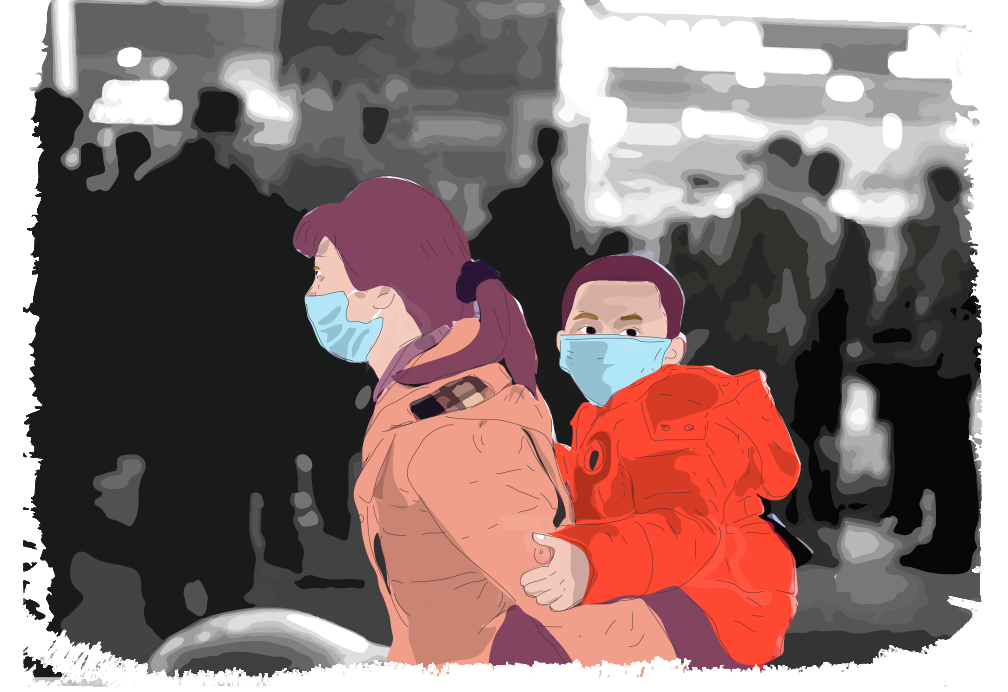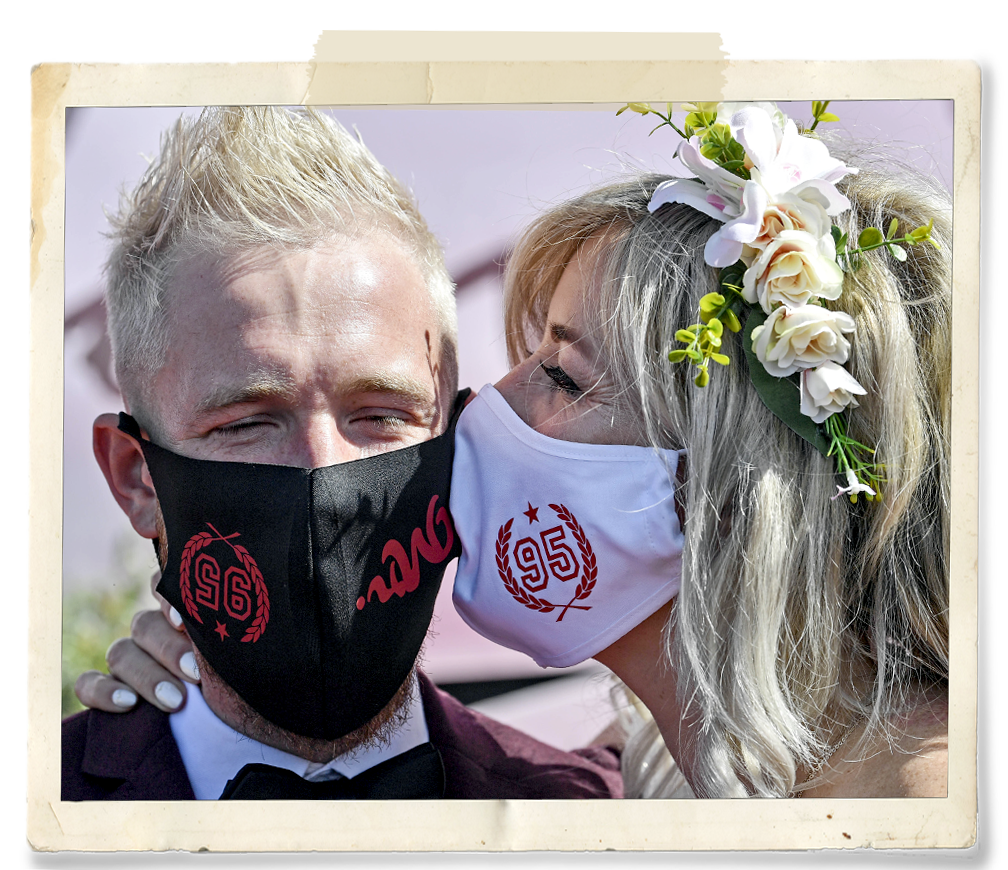Masks, hygiene and social distancing
A new lifestyle has been thrust upon us so we can stay safe, however restrictive it may seem

Look around you. All you see is people in masks. Walk into a shop or office, and the security personnel will rush to check your temperature. Rummage through any handbag, and you are sure to find a sanitiser. When you talk to friends and colleagues, you unwittingly keep a distance. These are normal now. The new normal.
It’s a lifestyle thrust on us by the new coronavirus. With COVID-19 becoming a global pandemic, we have adopted practices that would keep us safe from the virus. Some of them may be cumbersome, but our health matters the most. And SARS-CoV-2 is no ordinary virus. It has infected around 80 million and killed nearly 2 million. So it’s only prudent that we change our lifestyles to keep ourselves and others out of harm’s way.

AP
A bridal couple in Duesseldorf, Germany, on May 5, 2020.
Learning from others
Eight months ago, we were amused to see visitors from Southeast Asia wearing masks. You found them in airports and malls. And you probably wondered why they were wearing masks. These were people who lived through some of the worst virus attacks in recent history. Having survived the bird flu and SARS, they knew how masks could help in keeping pathogens out. Now we have to follow suit.
The vaccines are here, and the virus threat may be receding in the UAE. But a new strain, which transmits faster, has been found in the United Kingdom. So we still have to wear masks, especially in the company of others. Public places, indoor venues, public transport and all enclosed spaces are vulnerable areas. So it makes perfect sense to wear a mask.
Watch doctors and other medical professionals. They all wear masks in hospitals. The virus could still be around us, so we have to protect ourselves.
All of us have seen doctors rub their hands with sanitiser soon after examining a patient? That’s because they might have picked up germs. Washing with soap and water will kill pathogens, but that’s not possible always. So an alcohol-based sanitiser is the next best option.
We could do it as well. When we are out and about, we touch handrails, lift buttons, restaurant menus, door handles and many spots that are teeming with germs. A coronavirus could be lurking there, and there’s no way of knowing it. Then we touch our face.
You would be amazed at how many times we touch our faces. Yet we never realise it. Which makes it imperative to have clean hands. Wash your hands often, we are told. It helps keep the virus away.
The obsession with clean hands has killed handshakes. What happened to the hug? The virus took away our touch. Elbow bumps are never the same. A namaste is better: The Indian greeting with folded hands eliminates the need for contact, yet retains the respect for each other.
The human touch was lost in the need for social distancing. Two metres, that’s the distance to remain protected from each other. Why two metres? That’s a safe distance if coronavirus travels through the air from a sneeze.
Social distancing works in a queue, in a restaurant and such places. But in shops and malls, it can be tough. It’s up to each of us to keep the distance. And that may save us. Well, it’s the new normal.